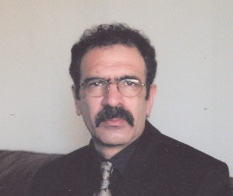
M. R. Ghanoonparvar
M. R. Ghanoonparvar is Professor Emeritus of Persian and Comparative Literature at The University of Texas at Austin. Professor Ghanoonparvar has also taught at the University of Isfahan, the University of Virginia, and the University of Arizona, and was a Rockefeller Fellow at the University of Michigan. He is the recipient of a Lifetime Achievement Award from the American Association of Teachers of Persian (2021) as well as a Lifetime Achievement Award for his contributions to presenting Persian culinary arts to the non-Iranian public from Encyclopædia Iranica (2009). He has published widely on Persian literature and culture in both English and Persian and is the author of: Prophets of Doom: Literature as a Socio-Political Phenomenon in Modern Iran (1984),In a Persian Mirror: Images of the West and Westerners in Iranian Fiction(1993), Translating the Garden (2001), Reading Chubak (2005), Persian Cuisine: Traditional, Regional and Modern Foods (2006), Iranian Film and Persian Fiction (2016), Dining at the Safavid Court (2016), and From Prophets of Doom to Chroniclers of Gloom (2021). His translations include Jalal Al-e Ahmad’s By the Pen, Sadeq Chubak’s The Patient Stone, Simin Daneshvar’s Savushun, Ahmad Kasravi’s On Islam and Shi’ism, Sadeq Hedayat’s The Myth of Creation, Nima Yushij’s The Neighbor Says: Letters of Nima Yushij and the Philosophy of Modern Persian Poetry, Davud Ghaffarzadegan’s Fortune Told in Blood, Mohammad Reza Bayrami’s TheTales of Sabalan and Eagles of Hill 60, and Bahram Beyza’i’s Memoirsof the Actor in a Supporting Role. His edited volumes include Iranian Drama: An Anthology, In Transition: Essays on Culture and Identity in Middle Eastern Societies, Gholamhoseyn Sa’edi’s Othello in Wonderland and Mirror-Polishing Storytellers, and Moniro Ravanipour’s Satan Stones and Kanizu. His most recent translations include Shahrokh Meskub’s In the Alley of the Friend and Leaving, Staying, Returning, Hushang Golshiri’s Book of Jinn, Moniro Ravanipour’s The Drowned and These Crazy Nights, Hamid Shokat’s Flight into Darkness: A Political Biography of Shapour Bakhtiar and Caught in the Crossfire: A Political Biography of Qavamossaltaneh, Ghazaleh Alizadeh’s The Nights of Tehran, Ruhangiz Sharifian’s The Last Dream and Doran, and Shahrnush Parsipur’s Blue Logos. He was the recipient of the 2008 Lois Roth Prize for Literary Translation. His forthcoming books are Swan Songs: On Diseases, Death and Dying in Persian Stories and Life Is a Fiction: A Memoir of Life and Literature. His forthcoming translations include Ghazaleh Alizadeh’s The House of the Edrisis and Two Views, Hossein Atashparvar’s From the Moon to the Well, and Reza Julai’s Jujube Blossoms.

Mohammad Mehdi Khorrami
Mohammad Mehdi Khorrami joined the faculty of New York University in 1997 and since then he has been teaching Persian language and literature at the Department of Middle Eastern Studies. His research is focused on the literary characteristics of contemporary Persian fiction and classical Persian poetry. He is the co-editor and co-translator of A Feast in the Mirror: Short Stories by Iranian Women and Another Sea, Another Shore: Persian Stories of Migration. His latest work, Modern Reflections of Classical Traditions in Persian Fiction, is a monograph on some of the major characteristics of contemporary literary production and literary criticism in Iran. This book was published simultaneously in the United States (in English) and in Iran (in Persian). He has also published numerous articles on Persian literature both in Persian and English. Currently he is working on a book project which focuses on analyzing literary counter-discourses in contemporary Persian fiction.